1. The X-Files
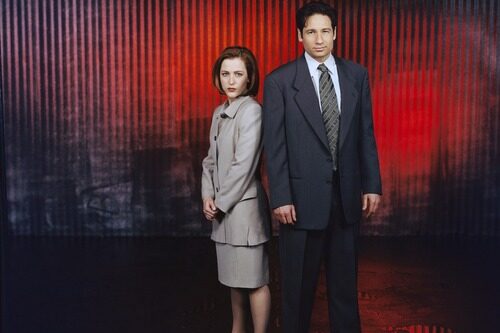
When The X-Files debuted in the ’90s, it was a cultural phenomenon that not only captivated viewers but also reshaped how conspiracy theories were portrayed on television. The show’s mix of government cover-ups, UFOs, and unexplained phenomena started a wave of distrust toward institutions. It wasn’t just about aliens; it was about questioning everything, from the safety of the food we eat to the motives of our leaders. The series made it cool to be skeptical, introducing generations to a world of possibilities beyond the official narratives shares the Hollywood Reporter.
For many, Mulder and Scully became the ideal models for truth-seekers, combining science and skepticism with a touch of belief. The truth, they said, was out there—but also often hidden from the public. It made people more aware of how much could be kept from the masses and how much of history was shaped by secrecy. The impact of The X-Files is still felt today, influencing the way modern media handles real-world conspiracies.
2. Roots
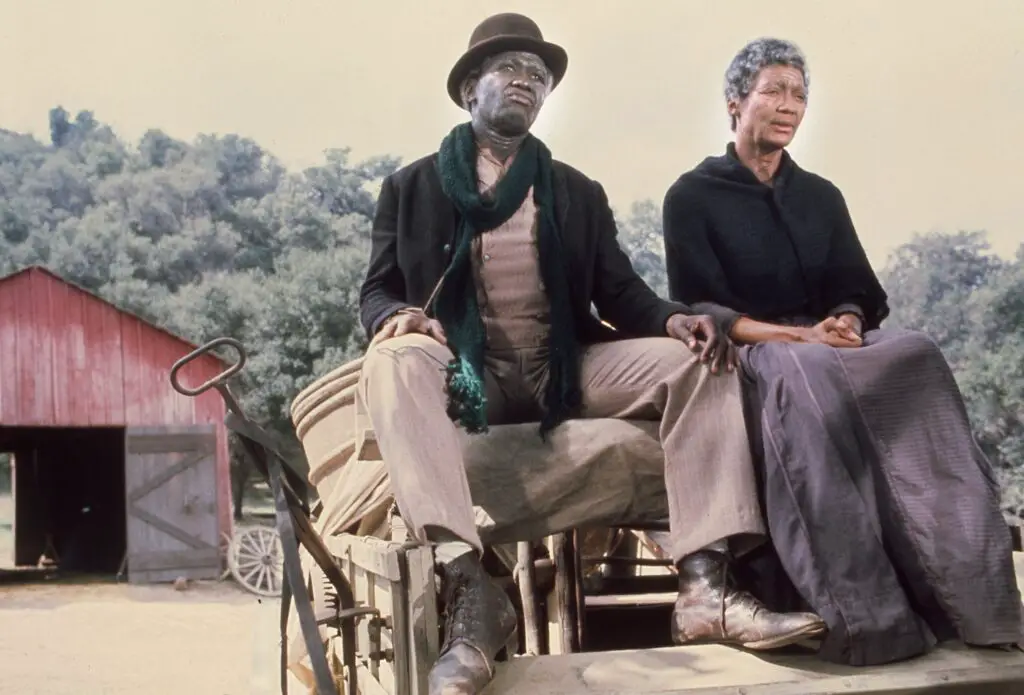
In 1977, Roots told the powerful story of Kunta Kinte and his descendants, forever changing the way Americans understood slavery and its impact on history. The mini-series depicted the harrowing journey of an African man kidnapped and sold into slavery, drawing millions of viewers into the painful truths of the past. It sparked national conversations about race, identity, and the legacy of slavery in America. Many viewers, particularly those outside the Black community, were confronted with a history they hadn’t fully understood or acknowledged says Deadline.
Before Roots, the subject of slavery was often relegated to brief mentions in textbooks or sanitized versions in school curricula. The show’s emotional power, based on Alex Haley’s book, made history feel real and personal to a whole generation. It was one of the first times mainstream television told this story in such vivid detail, forcing Americans to confront their past. The cultural effect of Roots can’t be overstated; it changed how we talk about race and slavery, creating a ripple effect that still shapes media today.
3. The Simpsons

As irreverent and over-the-top as it is, The Simpsons has actually reshaped how we think about family dynamics, politics, and American culture. What started as a satirical cartoon about a dysfunctional family quickly became a sharp commentary on society. From poking fun at politicians to questioning consumerism, the show pushed boundaries on what was acceptable to address in mainstream television. Characters like Homer and Marge embodied the everyman, capturing the struggles of the average American family says Cracked.com.
In many ways, The Simpsons quietly rewrote how we view traditional values. The show didn’t just entertain; it made its viewers think critically about the world they live in. With humor and wit, it introduced real-world topics like environmental issues, corporate greed, and even the absurdity of modern life. As a result, The Simpsons helped shape an entire generation’s perspective on family, politics, and society at large, blending humor with historical insights in a way few other shows ever attempted.
4. M*A*S*H
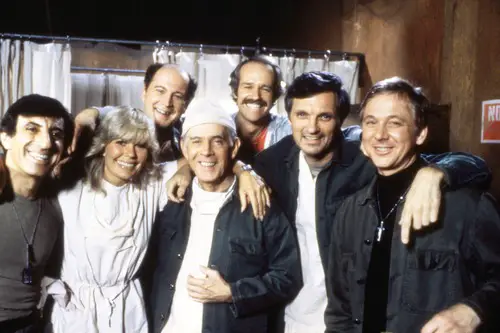
When M*A*S*H aired, it took the traditional sitcom formula and turned it on its head, tackling war and its psychological toll in a way no show had before. Set during the Korean War, the series wasn’t just about the comedic antics of a group of doctors and nurses—it explored the horrors of war and the emotional toll it takes on those who serve. The show’s mix of humor with moments of gut-wrenching drama gave it a unique emotional depth that was rare for its time. It also dealt with themes like bureaucracy, moral conflict, and the absurdity of violence, all while making people laugh adds USA Today.
While M*A*S*H was deeply rooted in the specific context of the Korean War, its influence reached far beyond. Its finale, watched by millions, symbolized the end of an era in American television, bringing to light the emotional scars of war and the complexities of human nature. The show helped redefine how TV could handle serious subjects, blending comedy with tragedy and making it socially relevant in ways that many other series struggled to do. M*A*S*H created a legacy of pushing boundaries, both in the portrayal of war and in its impact on mainstream television.
5. Breaking Bad
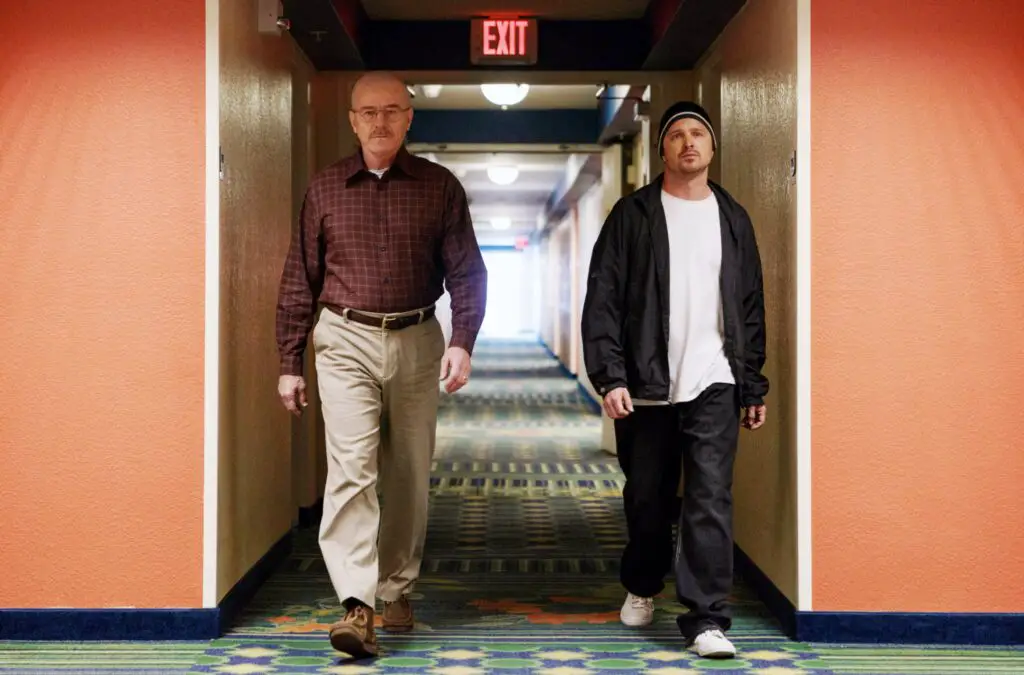
Breaking Bad didn’t just give us an unforgettable antihero in Walter White; it changed how we view morality on television. The show blurred the lines between good and evil, making us question whether people are truly capable of redemption. Walter’s transformation from a mild-mannered high school teacher into a ruthless drug kingpin was more than just character development—it was a commentary on the pressures of society and the choices we make under extreme circumstances. It showed that no one is beyond the reach of moral compromise, not even the most well-meaning individuals.
What Breaking Bad did so brilliantly was not just show how one man’s life unraveled but how the system and environment around him pushed him toward his decisions. It made viewers confront their own beliefs about right and wrong, and the personal choices that drive individuals into morally grey areas. The show had a significant cultural impact, setting a new standard for what television could explore in terms of moral ambiguity and complex character arcs. It’s a prime example of a show that redefined our expectations of storytelling on TV.
6. The Twilight Zone
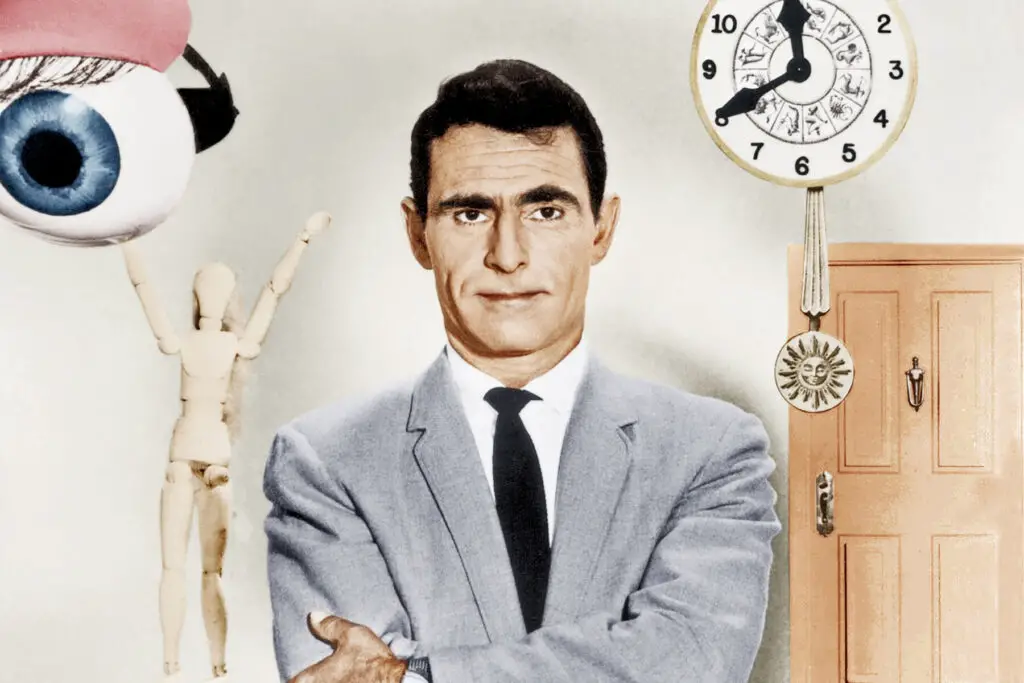
In the ’50s, The Twilight Zone redefined what science fiction could do, merging it with social commentary and morality tales that have stood the test of time. Creator Rod Serling used the show’s anthology format to address contemporary issues like racism, censorship, and the dangers of totalitarianism. Each episode was a mirror, reflecting the anxieties of the time and questioning the direction society was heading. The show’s ability to present these concerns in fantastical, otherworldly settings made them more palatable to viewers, while still challenging them to think critically about their own world.
The Twilight Zone didn’t just entertain; it often left viewers with a sense of unease, making them question the status quo and explore darker aspects of human nature. Its influence can still be seen in modern sci-fi and horror, where deep philosophical and political questions are wrapped in thrilling, otherworldly stories. The series made audiences more aware of the power of storytelling to reflect society’s ills and bring social issues to the forefront, long before other shows began to follow suit. It’s a hallmark of television that continues to resonate with people looking for more than just entertainment.
7. The Wonder Years
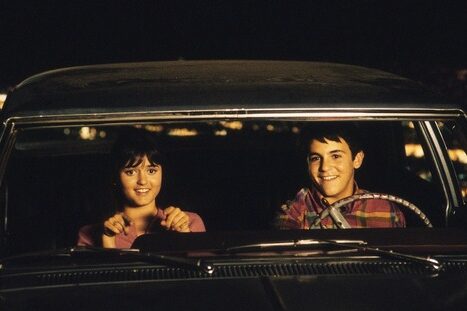
The Wonder Years gave viewers a nostalgic look at growing up in the ’60s and ’70s, but it wasn’t just a coming-of-age story. It also captured the political and social climate of the time, making it one of the most poignant and reflective shows about American life. By focusing on the struggles and triumphs of Kevin Arnold, the series provided a window into how societal change affected the average American family. Viewers couldn’t help but reflect on their own experiences, as the show tapped into universal themes of love, loss, and finding one’s place in the world.
The series also subtly rewrote history by showing how much the personal and the political are intertwined. From the Vietnam War to civil rights movements, The Wonder Years explored the major events of the time through the eyes of a teenager. It wasn’t just about growing up—it was about the backdrop of American history that shaped that experience. The show’s nostalgic look at childhood, with its delicate balance of humor and emotion, made it one of the most beloved portrayals of American youth, and its impact still lingers today.
8. Mad Men
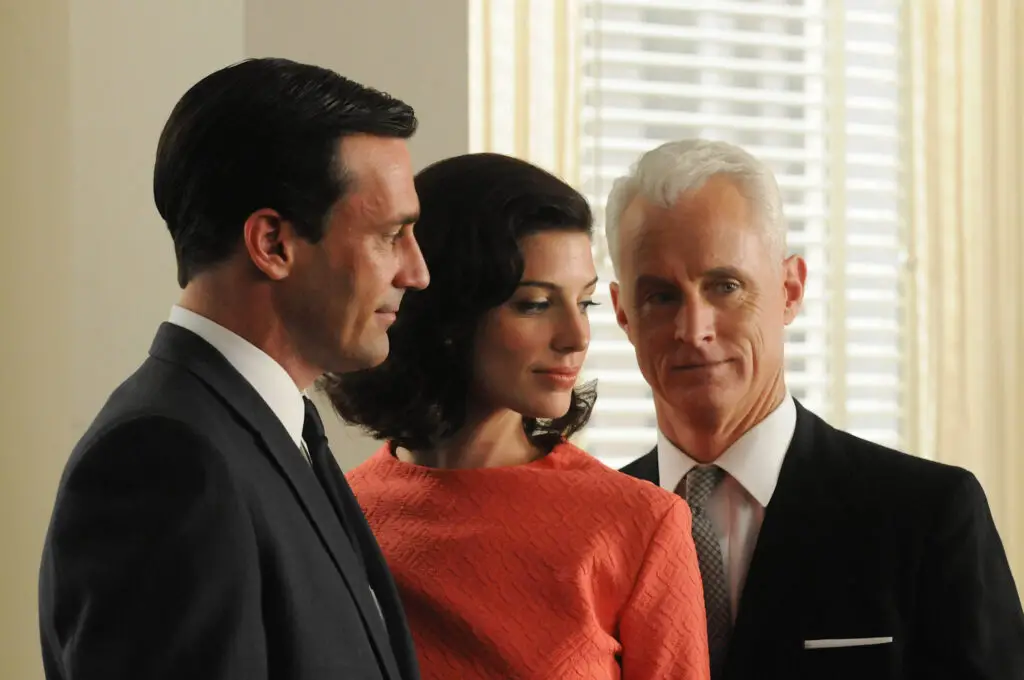
At first glance, Mad Men was a slick drama about the advertising industry in the ’60s, but it was much more than that. The show dissected the post-World War II American Dream, revealing the underlying flaws and societal shifts that were taking place beneath the surface. Through its complex characters, particularly Don Draper, it explored themes of identity, morality, and the pursuit of happiness. The series provided a deep dive into the ways advertising manipulated public perception and helped shape American culture in the postwar era.
Mad Men didn’t just transport viewers to a bygone era; it held up a mirror to the contradictions of that time. The show subtly challenged ideas about gender, race, and class, highlighting the limited roles available to women and minorities in a rapidly changing society. It also critiqued the very fabric of American consumerism, making viewers rethink the notion of success and fulfillment. Mad Men didn’t just tell a story of the ’60s—it helped reframe how we view that period in history, making it clear that the glossy exterior of the American Dream often masked deeper problems.
9. Chernobyl
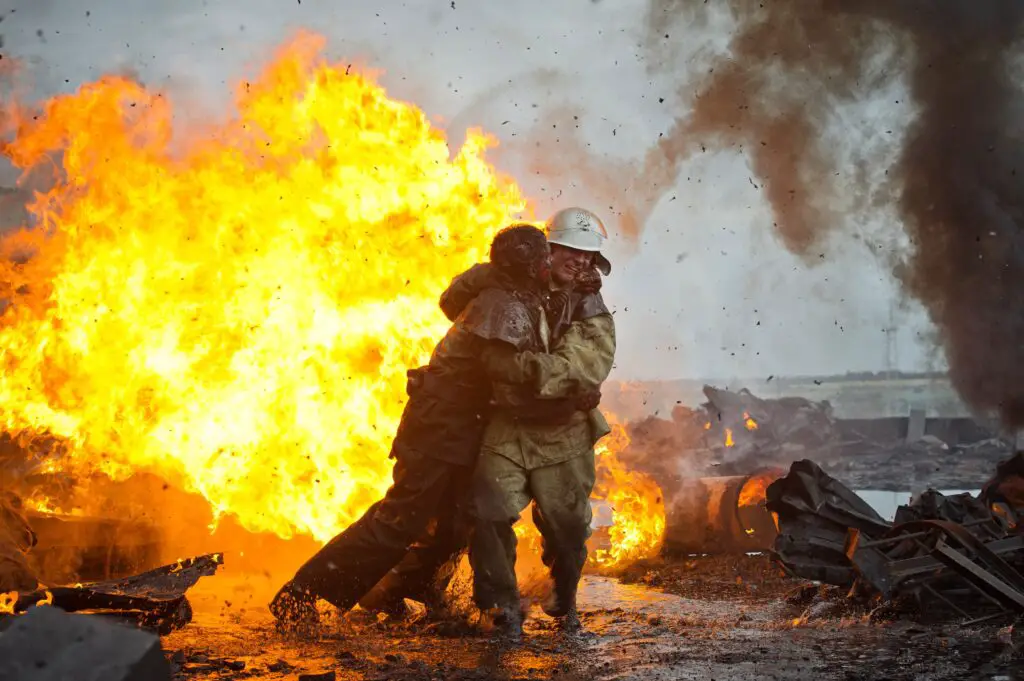
The 2019 miniseries Chernobyl brought to life one of the most devastating nuclear disasters in history, but it did more than just recount the events. It peeled back the layers of Soviet secrecy, showing the incredible toll the disaster took on individuals and communities. By focusing on the whistleblowers, scientists, and ordinary people who exposed the truth, Chernobyl turned a historical tragedy into a cautionary tale about the dangers of government control and misinformation. It also showcased the courage of those who risked their lives to save others, giving a face to the often-ignored heroes of history.
Though based on true events, the series added a level of emotional depth and realism that brought the disaster to life in a way that textbooks never could. The show’s brutal honesty about the failures of the Soviet government resonated deeply with viewers, particularly those who lived through the Cold War era. Chernobyl didn’t just recreate history—it made viewers feel the weight of it, urging them to never forget the consequences of ignoring the truth. Its portrayal of the human cost of political corruption was both heartbreaking and eye-opening, reminding us of the lessons that history tries to teach.
10. All in the Family
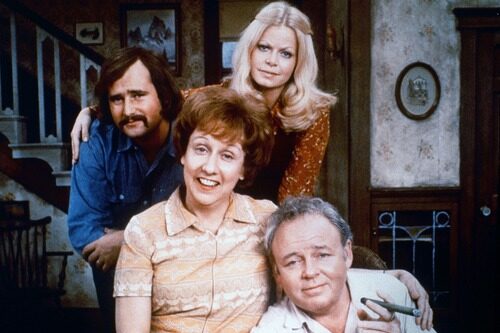
When All in the Family aired in the early ’70s, it pushed the boundaries of what was considered acceptable on television. The show tackled controversial topics like racism, sexism, and homophobia through the character of Archie Bunker, a working-class man with outdated views. Rather than shy away from uncomfortable conversations, the show made them central to its comedy, forcing viewers to confront their own prejudices. The show’s raw approach to social issues made it a groundbreaking piece of television, offering a sharp critique of American society during a time of significant social change.
Archie Bunker may have been a caricature, but he also represented the fears and biases of a generation. All in the Family didn’t just entertain—it educated and provoked. It rewrote the way TV approached sensitive issues, making viewers laugh while also challenging their perceptions. The show’s legacy lies in its ability to open a dialogue about societal problems that many shows before it had avoided, making it a key turning point in the history of television.
11. The Crown
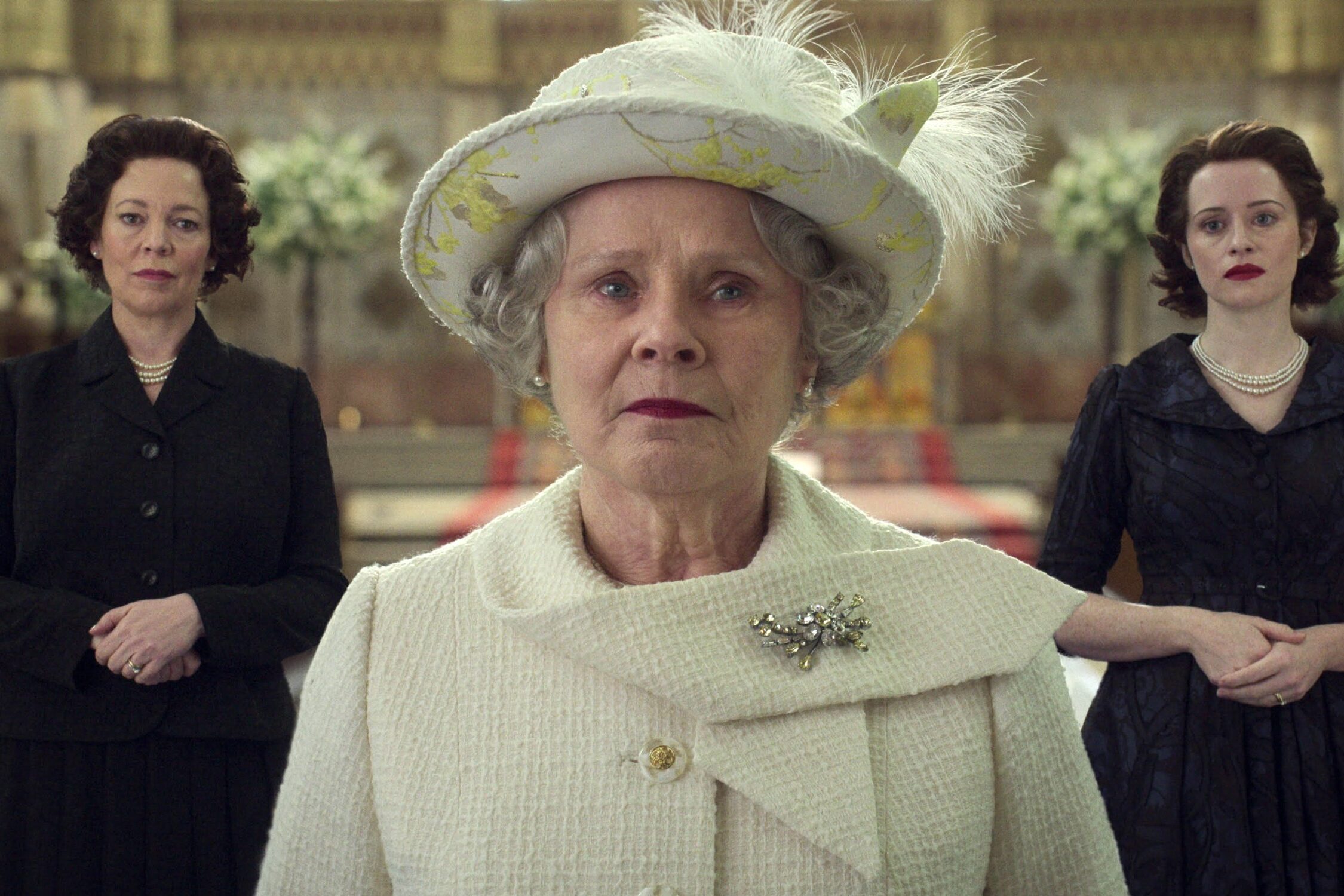
The Crown reimagines the reign of Queen Elizabeth II, blending historical events with fictionalized portrayals of the royal family. What began as a look into the life of Britain’s longest-reigning monarch evolved into a broader exploration of the impact of power, duty, and personal sacrifice. Though the series is not a documentary, it has played a major role in reshaping how people view British history, offering insight into the complex relationships behind the palace walls. By focusing on the emotional toll of leadership, The Crown made viewers reconsider what it means to be in power and the personal costs associated with it.
The series has sparked widespread debate about historical accuracy and artistic interpretation, but it also brought lesser-known events to a global audience. By portraying moments from the lives of figures like Winston Churchill, Princess Diana, and Prince Philip, it added nuance to our understanding of these historical figures. In doing so, The Crown has become an influential force in the way history is told, reminding us that the lives of the famous and powerful are often more complicated than we imagine.
12. The Handmaid’s Tale

While The Handmaid’s Tale is set in a dystopian future, it also offers a chilling reflection of the ways in which societies have rewritten history to control women. Based on Margaret Atwood’s novel, the show imagines a world where women are stripped of their rights and forced into reproductive servitude. The series has resonated with modern audiences, especially as it touches on themes of gender inequality, reproductive rights, and the dangers of authoritarianism. By showing the extreme consequences of patriarchal control, The Handmaid’s Tale forces viewers to confront how easily history can be rewritten to erase women’s rights.
Though the series is speculative fiction, its portrayal of systemic oppression feels eerily relevant today. In a world where women’s rights are still debated and contested, The Handmaid’s Tale serves as a reminder of how easily freedoms can be taken away. The show’s impact goes beyond entertainment; it has sparked real-world conversations about power, control, and the importance of protecting individual rights. By reimagining history in a way that highlights the fragility of freedom, it has become a powerful tool for social commentary.
13. The Office
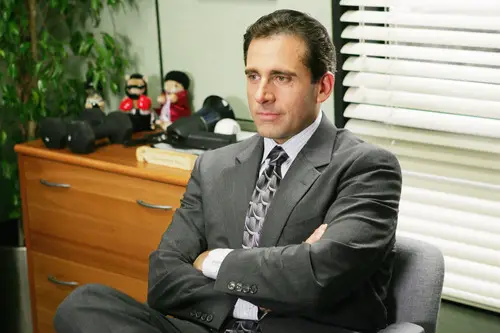
At first glance, The Office may seem like just another workplace comedy, but its subtle critiques of corporate America and the monotony of office life have made it a cultural touchstone. The show’s mockumentary format allowed it to take a more intimate and honest look at the mundane aspects of everyday work, from the pointless meetings to the awkward small talk. But it also highlighted the absurdity of corporate culture, where power dynamics and absurd office politics could have major consequences. What really set The Office apart was its ability to balance humor with moments of real emotional depth, especially when it came to the characters’ personal lives.
By focusing on the trials and tribulations of a group of seemingly ordinary people, The Office redefined what a workplace sitcom could be. It shifted the narrative from the typical corporate drama to something more relatable, showcasing the humanity behind the employees. This unique blend of humor and heart made it one of the most influential TV shows of its time, reflecting the changing nature of work, relationships, and the complexities of modern life. The series is often hailed as one of the best depictions of the American workplace, turning the ordinary into something extraordinary.
14. The Big Bang Theory
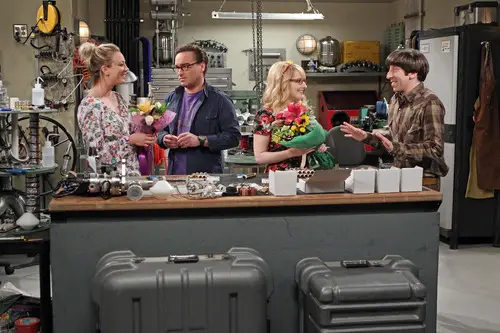
When The Big Bang Theory first aired, it introduced a new kind of sitcom character: the geeky, socially awkward genius. While the show often leaned on stereotypes, it also helped rewrite how nerd culture was perceived in mainstream media. Instead of being relegated to the fringes, characters like Sheldon Cooper and Leonard Hofstadter became central figures, celebrated for their intelligence and quirks. The show did more than just entertain; it made science and intellectualism cool, creating a shift in how we view nerd culture, tech, and even relationships.
The series also explored the personal lives of highly intelligent individuals, breaking down the idea that brains and social skills couldn’t coexist. The Big Bang Theory showcased that people, regardless of their quirks or eccentricities, have the same desires and fears as anyone else. It opened up conversations about the social dynamics within academic and scientific communities, highlighting both the challenges and humor in those environments. By turning nerd culture into mainstream entertainment, The Big Bang Theory helped redefine what it means to be smart and socially awkward, making it easier for future generations to embrace their passions and interests without fear of judgment.
